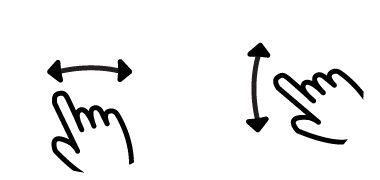In this episode you will learn the following:
Below is a list of some of the things you will learn and what is covered in this episode of the series:- The top 6 foods to avoid.
- Foods to eat during the phases of the menstrual cycle, such as what to have during the menstrual, follicular and ovulation phases.
- The basic preconception food principles.
- How to maximize nutrients.
- Why you should have a balanced diet.
- Why you should be eating 'seasonally' to maximize nutrient density.
- Organic foods.
- Toxins and chemicals.
- Carbohydrates, Carbs and Complex Carbs.
- Omega-3s.
- Food groups.
- What to eat and avoid to promote optimal cervical mucus for sperm.
About this Series
Dr. Tash, leading fertility expert explains what you should and shouldn't be eating when preparing to conceive. Good nutrition before conceiving can help you prepare your body for a healthy pregnancy. If you are planning to have a baby, you will want to ensure he or she has the best start, before you even get pregnant. Sperm and egg must meet within a small 12-24 hour window within the menstrual cycle. You will learn how you can maximize your chances of conceiving and increase your chances of getting pregnant faster.
Ovulation Calculator has produced this video series with leading fertility expert, Dr Natasha Andreadis (Dr Tash).
Embed This Video
Video Transcript
I am Dr. Tash. Nutrition is vital in optimizing your fertility. Here's what you need to eat.
Nutrition is a very important part of pregnancy planning. Clearly, there are things that you shouldn't or should eat. There are some basic food principles that I like for you to follow when you are thinking about conceiving and even during when you are pregnant. Some basic principles include eating whole foods, that is eating foods that you're able to identify as a real food, like a tomato for example. You want to maximize the amount of nutrients that you actually eat at every meal, and the only way you're going to get that is when you eat a lot of vegetables. You also have to be mindful of how much sugar you have in your diet. You would like actually have a balance of foods. So you are looking at whole foods such as meat, dairy, vegetables, fruits, and nuts.
You'd like to also eat seasonally. What that means is eating things in season, and that's important because you know that seasonal fruits and vegetables will actually be maximized in their nutrient density. Something that's not seasonal that you are seeing on a shelf means it's probably been brought from somewhere else. It's been refrigerated, had to come from a long way and it's probably lost a lot of its nutritional potential. Organic, why do we go on about organic? Because organic means that the food that you are eating has less toxins and chemicals in it, that's the thing to remember. When you're pregnant or planning a pregnancy, you want to minimize the amount of toxins in your body. Why? Because those toxins go straight through to the placenta, to your baby, and even into your breast milk.
You have to be smart about the carbohydrates you're eating. Carbohydrates aren't bad. You can't just say all carbs are bad. There are better carbs than others and that's important to realize, especially when you have a condition like polycystic ovarian syndrome. With that condition, you're more likely to develop diabetes and pre-gestational diabetes. So it's very important that you make sure that you don't have spikes in your insulin levels. And this is really vital, because there are certain carbohydrates that will cause spikes in insulin and others that won't. Complex carbohydrates, they're usually vegetables and fruits, and they are more nutrient dense than, say, simple carbohydrates, which are found in things like white bread or white rice. You want to maximize the amount of complex carbohydrates over the simple carbohydrates.
Fish is high in omega-3s and omega-3s are really important for baby's brain and eye development. Nuts and seeds are a great snack, and that's because they're high in omega-3s, nutrients, vitamins, and minerals.
These are the top six foods to avoid when planning a pregnancy. This goes for you and your partner.
#6. Soy milk! What's wrong with soy? The issue with soy is it's highly processed usually, and high in estrogen, and that can interfere with your own hormones, particularly for a man.
#5. Sugar is the white death. There's no added nutritional value when it comes to sugar. There's no reason to put sugar into your coffee, absolutely none. Now, when I talk about sugar, I mean refined sugar, like table sugar. I am not talking about the sugar that you find in your fruits. That's a different story.
#4. Everyone loves a bit of alcohol, red wine, vodka. I recommend you review how much alcohol you're having. What's the safe limit? We don't really know if there's a safe limit. So for that reason, I recommend you try and minimize your alcohol intake. If you are going to have alcohol, make it at least something that's beneficial like red wine, that we at least know has some antioxidant in it.
#3. Processed foods, that usually means that the food has been stripped of all its nutrient capacity. A lot of the time, things are added in to make up for that. A lot of those added in things are things like sugar, the white death. Avoid processed foods.
#2. Fast fried food. Again, absolutely no benefits to that, avoid at all costs. Elvis Presley, who used to deep fry his Mars bars, maybe just agreeing with me right now.
#1. Number one food type to avoid is junk food, things like Kit Kats, chips, Mars bars. They are everywhere, easy to find, cheap, but don't do it. There's absolutely no benefit to you or your future pregnancy.
Depending on where you are in your menstrual cycle, it's important to perhaps focus your attention on certain food groups. So when you've got a period, when you've got a bleed, you can lose up to 35 milliliters, some women up to 80 milliliters of blood in that cycle. So you have to make up for that iron deficiency. So where do you get iron from? Along with your meat, your leafy greens, your kale, your beans, you might make a point of putting some vitamins C on that plate. Where can you get vitamin C from? Tomato. What does the vitamin C do? It helps you absorb that iron. It maximizes the amount of iron on your plate. When eating your iron rich foods, you may want to avoid having coffee close to that time as well. Because what coffee does, it's got caffeine in it and caffeine reduces the amount of iron absorption.
So in the follicular phase, and particularly around the ovulation phase of your cycle, you might want to be mindful of what you eat. Because what you eat may affect the acidity or the alkaline-acid balance of your cervical mucus. We know that certain foods are more acidic. Sperm doesn't like acid, so what you want to do is avoid acidic-type foods, like alcohol, caffeine, a lot of meat, or eggs. To promote the more alkaline side of your diet, it's important to be mindful of good vegetable intake, fruits, and nuts as well as seeds.
Eating well for pregnancy for you and your partner is really quite simple. It's not complex at all. Keep it simple, and that means just buying food, eating food that looks like it's come from nature, avoid processed foods. Just eat things that are colorful, that are not packaged. That way, you'll set yourself up for the best pregnancy ever.







